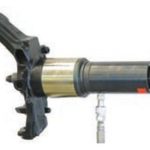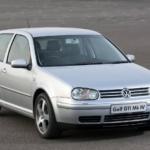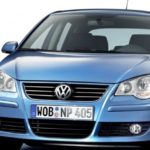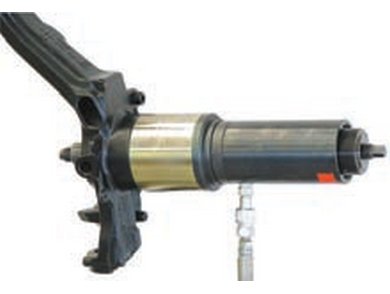What Causes Weird Turn Sounds?
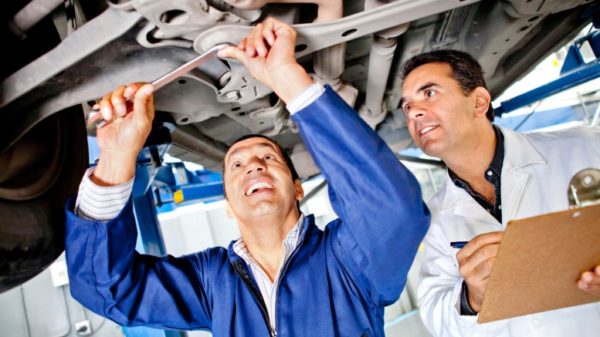
What Causes Weird Turn Sounds?
Although we regularly take the vehicle to the service center or inspect it ourselves every month or more often, various malfunctions still occur while driving.
Sometimes it's possible to get to the nearest vehicle service with a breakdown, and sometimes that breakdown manifests itself as an audible signal that can last for days, weeks, and sometimes even months before the crucial development actually happens, that is, the vehicle leaves you somewhere on the road. Therefore, while driving, we should always have all our senses well-sharpened in order to see if something is wrong with the vehicle. Today we will talk about your ears, that is, about the sound signals that the vehicle sends us when turning. These signals should not be ignored and as soon as possible you need to see what is causing the squeaking, scratching or whatever the sound signal is.
If you hear a grinding sound when cornering or wherever, the problems can be twofold. Could be a problem with bearings or with wheels. When we say 'wheels' is actually a very broad term, so there are a number of items that may be about to fail. Most often, this can be done with axial bearings. However, the cause of the squeak can also be the servo belt, if it is too loose or too tight.
In a smaller number of cases, the problem can be the disc on the wheel, i.e. if there is room, or as we like to say, the air dances on the wheel head. Of course, it can be clear to a layman that in this case there are sounds when turning. The sound when turning occurs even when the discs and pads are nearing the end, worn out.
Furthermore, there is a cuff around the joint on the wheel, and it can happen that it breaks and creates noise when turning. This is a minor problem and can be solved quickly, so you can be grateful if your vehicle only "treats" you with this kind of failure in case it made some kind of noise when turning.
A knocking, banging, metallic sound when turning can be a sign that there is a problem with the CV joint, a torn CV joint was neglected, and the CV joint ran out of grease (lubrication), which accelerated wear. If you react immediately and go to the service as soon as possible, only lubrication of the homokinetic joint and replacement of the oil seal may be able to solve the problem. And if the sound is ignored and you drive with it for a long time, it can lead to greater damage to the homokinetic joint and, in the end, even the semi-axle falling out during a sharp turn.
Sometimes it happens that some kind of twig flies into the wheel, into the system, which is not easily destroyed by the friction of the wheel, thus creating noise. Of course, the solution is very simple and you just need to find that little naughty twig and throw it out.
We should not forget that the sound when turning can also occur if we have unsuitable tires, then with failures on the shock absorbers, but also on the links. And the hand cable can make a noise when turning in a scenario if it comes loose and then scrapes against the metal when the car is in motion. Sometimes the fault is in a completely different place, but we cannot locate it exactly because the sound is transmitted.
When the engine mount comes off, there may be a noise when driving and turning. This is also not out of place to check because the supports are very important and should not be allowed to remain in a state of deterioration for a long time. The longer we do this, the more expensive the breakdown will be later.
Also, in addition to all this, you should also know that in some cases it is quite normal for the car to squeal when turning, and this most often happens when the asphalt is heated and the tire squeals under the weight of the car because the angle of rotation of the tire is greater than the road covered by the tire, i.e. this happens either if we roll in place or if we roll too fast. The same scenario can happen in wet weather, and then it's just up to the type and quality of rubber that we decided to get for our tin pet.
So, there are many reasons why a wide variety of sounds can be heard when turning, and they vary from lighter, barely noticeable to a real attack on our ears in the form of whining, squealing and grinding. But the message is the same, whatever the sound is, never ignore it!
Recommendation of similar texts:

Hi there, I am Mladen and I am an auto enthusiast. I started this blog years ago to help like minded people share information about latest cars, car servicing ideas, used car info, exotic cars, and auto technology. You will find helpful articles and videos on a wide variety of cars - Audi, Mercedes, Toyota, Porsche, Volvo, BMW and much more. Ping us if you have anything cool to share on latest cars or on how to make older cars more efficient, or just want to say hi!

